⏳ Years in Agriculture
International and National Years Celebrated Related to Agriculture
🥸 An International Year is an important cooperation mechanism dedicated to raising awareness of a particular topic or theme of global interest or concern, and mobilizing different players for coordinated action around the world.
2014 👉🏻 International Year 🌎 of Family Farming
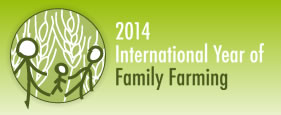
- The United Nations declared 2014 the International Year of Family Farming (IYFF) to recognize the importance of family farming in reducing poverty and improving global food security. The IYFF aims to promote new development policies, particularly at the national but also regional levels, that will help smallholder and family farmers eradicate hunger, reduce rural poverty and continue to play a major role in global food security through small-scale, sustainable agricultural production.
- The programme developed and implemented by International Fund for Agricultural Development (IFAD).
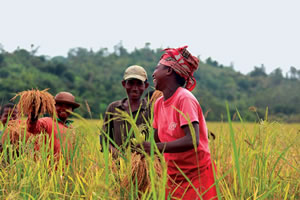
2015 👉🏻 International Year 🌎 of Soils
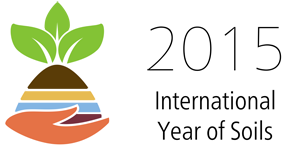
- The 68th UN General Assembly declared 2015 the International Year of Soils (IYS).
- The Food and Agriculture Organization of the United Nations has been nominated to implement the IYS 2015, within the framework of the Global Soil Partnership and in collaboration with Governments and the secretariat of the United Nations Convention to Combat Desertification.
- The IYS 2015 aims to increase awareness and understanding of the importance of soil for food security and essential ecosystem functions.
- The specific objectives of the IYS 2015 are to:
- Raise full awareness among civil society and decision makers about the profound importance of soil for human life;
- Educate the public about the crucial role soil plays in food security, climate change adaptation and mitigation, essential ecosystem services, poverty alleviation and sustainable development;
- Support effective policies and actions for the sustainable management and protection of soil resources;
- Promote investment in sustainable soil management activities to develop and maintain healthy soils for different land users and population groups;
- Strengthen initiatives in connection with the SDG process (Sustainable Development Goals) and Post-2015 agenda;
- Advocate for rapid capacity enhancement for soil information collection and monitoring at all levels (global, regional and national).
2016 👉🏻 International Year 🌎 of Pulse

- The 68th UN General Assembly declared 2016 the International Year of Pulses (IYP)
- The Food and Agriculture Organization of the United Nations (FAO) has been nominated to facilitate the implementation of the Year in collaboration with Governments, relevant organizations, non-governmental organizations and all other relevant stakeholders.
- The IYP 2016 aims to heighten public awareness of the nutritional benefits of pulses as part of sustainable food production aimed towards food security and nutrition. The Year will create a unique opportunity to encourage connections throughout the food chain that would better utilize pulse-based proteins, further global production of pulses, better utilize crop rotations and address the challenges in the trade of pulses.
- The specific objectives of the IYP 2016 are to:
- Raise awareness about the important role of pulses in sustainable food production and healthy diets and their contribution to food security and nutrition;
- Promote the value and utilization of pulses throughout the food system, their benefits for soil fertility and climate change and for combating malnutrition;
- Encourage connections throughout the food chain to further global production of pulses, foster enhanced research, better utilize crop rotations and address the challenges in the trade of pulses.

- In 2019, the General Assembly proclaimed 10th February as the World Pulses Day.
2017 👉🏻 International Year 🌎 of Sustainable Tourism for Development
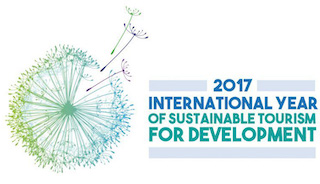
- The United Nations 70th General Assembly designated 2017 as the International Year of Sustainable Tourism for Development.
- Throughout the year, World Tourism Organization (UNWTO) and the wider United Nations system worked to raise awareness of the contribution of sustainable tourism to development among public and private sector decision-makers and the public. At the same time, UNWTO took the lead to mobilize all stakeholders to work together in making tourism a catalyst for positive change.
- The landmark year was celebrated within the context of the 2030 Agenda for Sustainable Development and the Sustainable Development Goals (SDGs). It highlighted the importance of government policies, business practices and consumer behavior for building a more sustainable tourism sector that can contribute to the SDGs.
- Contrary to common practice, the United Nations has not declared 2018 as International Year for any specific topic.
- But Indian 🇮🇳 has 😃 its own national year.
2018 👉🏻 National Year 🇮🇳 of Millets
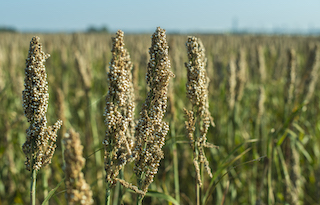
- Government of India declare 2018 as National Year of Millets. India also forwarded a proposal to United Nations (UN) for declaring year 2018 as “International Year of Millets” but the proposale could not be passed in that year. After that UN accepted the proposal and will celebrate 2023 as “International Year of Millets”.
- This is to recogninse the importance of milletes and to boost production of the nutrient-rich millets.
2019 👉🏻 International Year 🌎 of Indigenous Languages
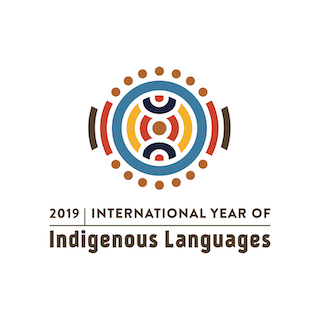
- In 2016, the United Nations General Assembly adopted a resolution proclaiming 2019 as the International Year of Indigenous Languages, based on a recommendation by the Permanent Forum on Indigenous Issues.
- The General Assembly resolution requested the United Nations Educational, Scientific and Cultural Organization (UNESCO) as the lead UN agency for coordination of the year.
- At the time, the Forum said that 40 per cent of the estimated 6,700 languages spoken around the world were in danger of disappearing. The fact that most of these are indigenous languages puts the cultures and knowledge systems to which they belong at risk.
- Indigenous peoples foster and promote unique local cultures, customs and values which have endured for thousands of years. Indigenous languages add to the rich tapestry of global cultural diversity. Without them, the world would be a poorer place.
- Celebrating IYIL2019 will help promote and protect indigenous languages and improve the lives of those who speak them. It will contribute to achieving the objectives set out in the United Nations Declaration on the Rights of Indigenous Peoples and the 2030 Agenda on Sustainable Development.
- The celebration is also expected to strengthen and reinforce the many standard-setting tools adopted by the international community which include specific provisions to promote and protect languages.
Indigenous peoples =
— UNPFII (@UN4Indigenous) April 15, 2018
5% of 🌎's population
60% of 🌎's languages
Protecting indigenous peoples' languages = protecting their identity. 2019 is International Year of Indigenous Languages, which will be discussed at #UNPFII17. Info https://t.co/IKo4oE96UO #WeAreIndigenous pic.twitter.com/rFvp1lgKTA
2020 👉🏻 International Year 🌎 of Plant Health

- The United Nations General Assembly declared 2020 as the International Year of Plant Health (IYPH). The year is a once in a lifetime opportunity to raise global awareness on how protecting plant health can help end hunger, reduce poverty, protect the environment, and boost economic development.
- Plants are the source of the air we breathe and most of the food we eat, yet we often don’t think about keeping them healthy. This can have devastating results. FAO estimates that up to 40% of food crops are lost due to plant pests and diseases annually. This leaves millions of people without enough food to eat and seriously damages agriculture - the primary source of income for rural poor communities.
- Plant health is increasingly under threat. Climate change, and human activities, have altered ecosystems, reducing biodiversity and creating new niches where pests can thrive. At the same time, international travel and trade has tripled in volume in the last decade and can quickly spread pests and diseases around the world causing great damage to native plants and the environment.
- Protecting plants from pests and diseases is far more cost effective than dealing with full-blown plant health emergencies. Plant pests and diseases are often impossible to eradicate once they have established themselves and managing them is time consuming and expensive. Prevention is critical to avoiding the devastating impact of pests and diseases on agriculture, livelihoods and food security and many of us have a role to play.
2021 👉🏻 International Year 🌎 of Fruits and Vegetables

- The UN General Assembly designated 2021 the International Year of Fruits and Vegetables (IYFV).
- FAO is the lead agency for celebrating the year in collaboration with other relevant organizations and bodies of the United Nations system.
- The IYFV 2021 is a unique opportunity to raise awareness on the important role of fruits and vegetables in human nutrition, food security and health and as well in achieving UN Sustainable Development Goals.
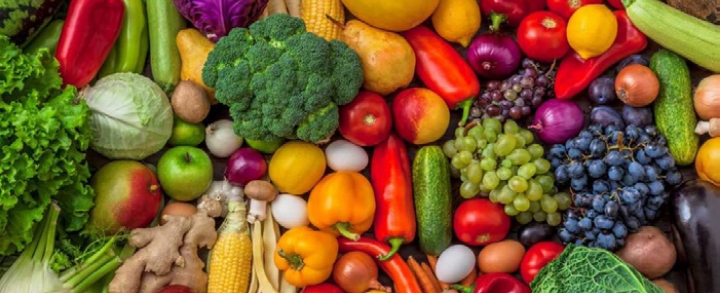
2022 👉🏻 International Year 🌎 of Artisanal Fisheries and Aquaculture

- The United Nations General Assembly has declared 2022 the International Year of Artisanal Fisheries and Aquaculture (IYAFA 2022). FAO is the lead agency for celebrating the year in collaboration with other relevant organizations and bodies of the United Nations system.
- The global food system faces many complex challenges, including hunger, malnutrition and diet-related diseases, an ever-growing global population that needs sufficient and healthy food, the need to reduce food loss and waste, the depletion of natural resources and effects of climate change, as well as the effects of the current COVID-19 pandemic.
- Fish, molluscs, crustaceans and aquatic plants are fundamental, essential and indispensable foods eaten by people around the world as part of healthy diets, cultural heritage and culinary tradition. Small-scale artisanal fishers and fish farmers produce a large portion of this food, and as such, IYAFA 2022 is an opportunity to highlight the importance of small-scale artisanal fisheries and aquaculture for our food systems, livelihoods, culture and the environment. Small-scale fishers, fish farmers and fish workers hold enormous potential to promote transformative changes in how, by whom and for whom fish and fishery products are produced, processed and distributed – with positive ripple effects felt throughout the global food system.
2023 👉🏻 International Year 🌎 of Millets
- The U.N. Food and Agriculture Organization is endorsing India’s proposal to declare 2023 as the International Year of Millets.
- Millet, a grain mainly grown and consumed in developing countries until recently and once considered a poor man’s staple, is quickly becoming a favorite globally among those affected by climate change because of its ability to thrive in harsh and arid environments. Its drought-resistant quality makes it attractive as many parts of the world begin to experience a water supply shortage.
- 📺 ICAR Tabeula in Republic Day Prade 2023
🥸 An International Year is an important cooperation mechanism dedicated to raising awareness of a particular topic or theme of global interest or concern, and mobilizing different players for coordinated action around the world.
2014 👉🏻 International Year 🌎 of Family Farming

- The United Nations declared 2014 the International Year of Family Farming (IYFF) to recognize the importance of family farming in reducing poverty and improving global food security. The IYFF aims to promote new development policies, particularly at the national but also regional levels, that will help smallholder and family farmers eradicate hunger, reduce rural …
Become Successful With AgriDots
Learn the essential skills for getting a seat in the Exam with
🦄 You are a pro member!
Only use this page if purchasing a gift or enterprise account
Plan
- Unlimited access to PRO courses
- Quizzes with hand-picked meme prizes
- Invite to private Discord chat
- Free Sticker emailed
Lifetime
- All PRO-tier benefits
- Single payment, lifetime access
- 4,200 bonus xp points
- Next Level
T-shirt shipped worldwide

Yo! You just found a 20% discount using 👉 EASTEREGG

High-quality fitted cotton shirt produced by Next Level Apparel